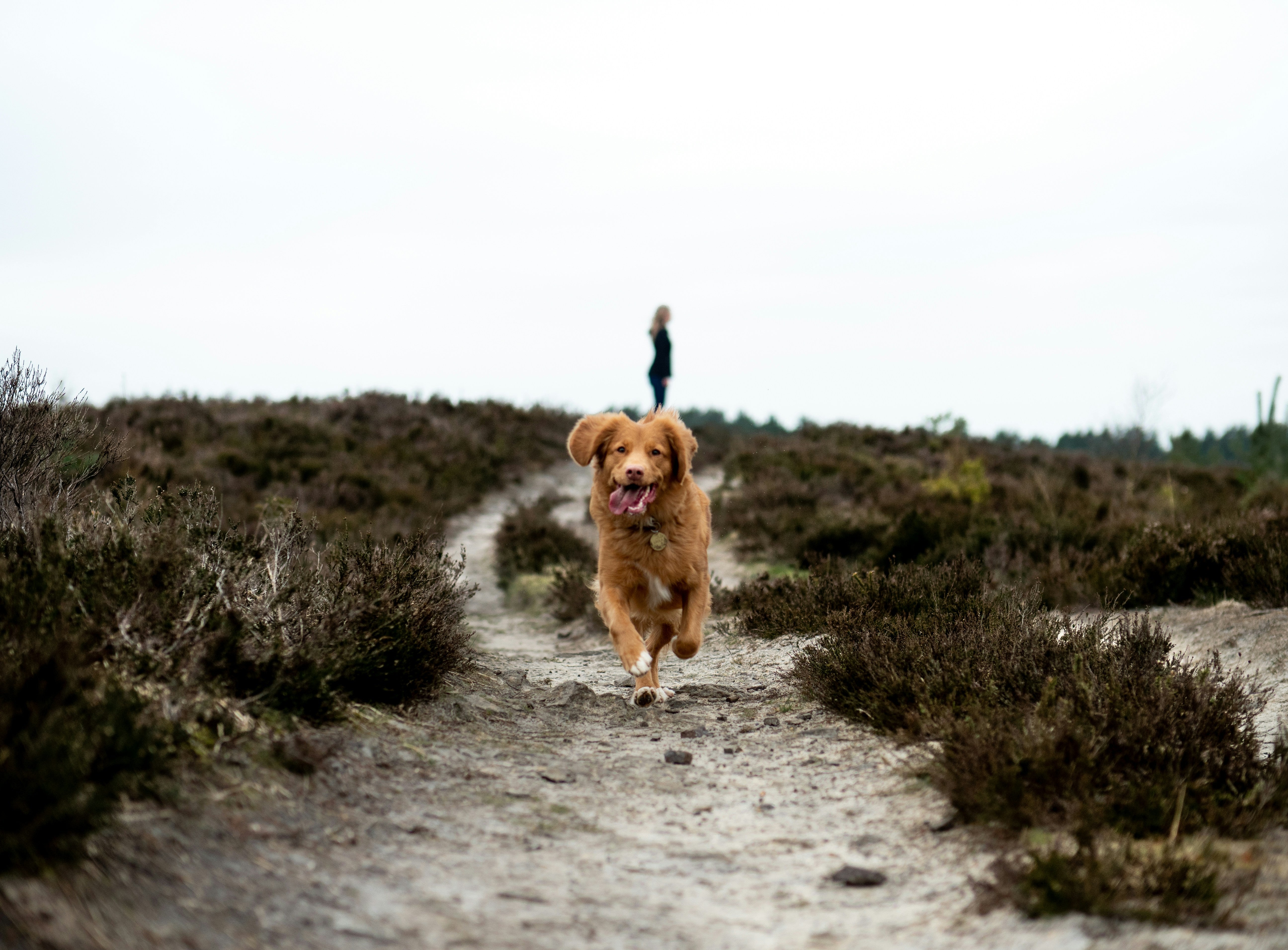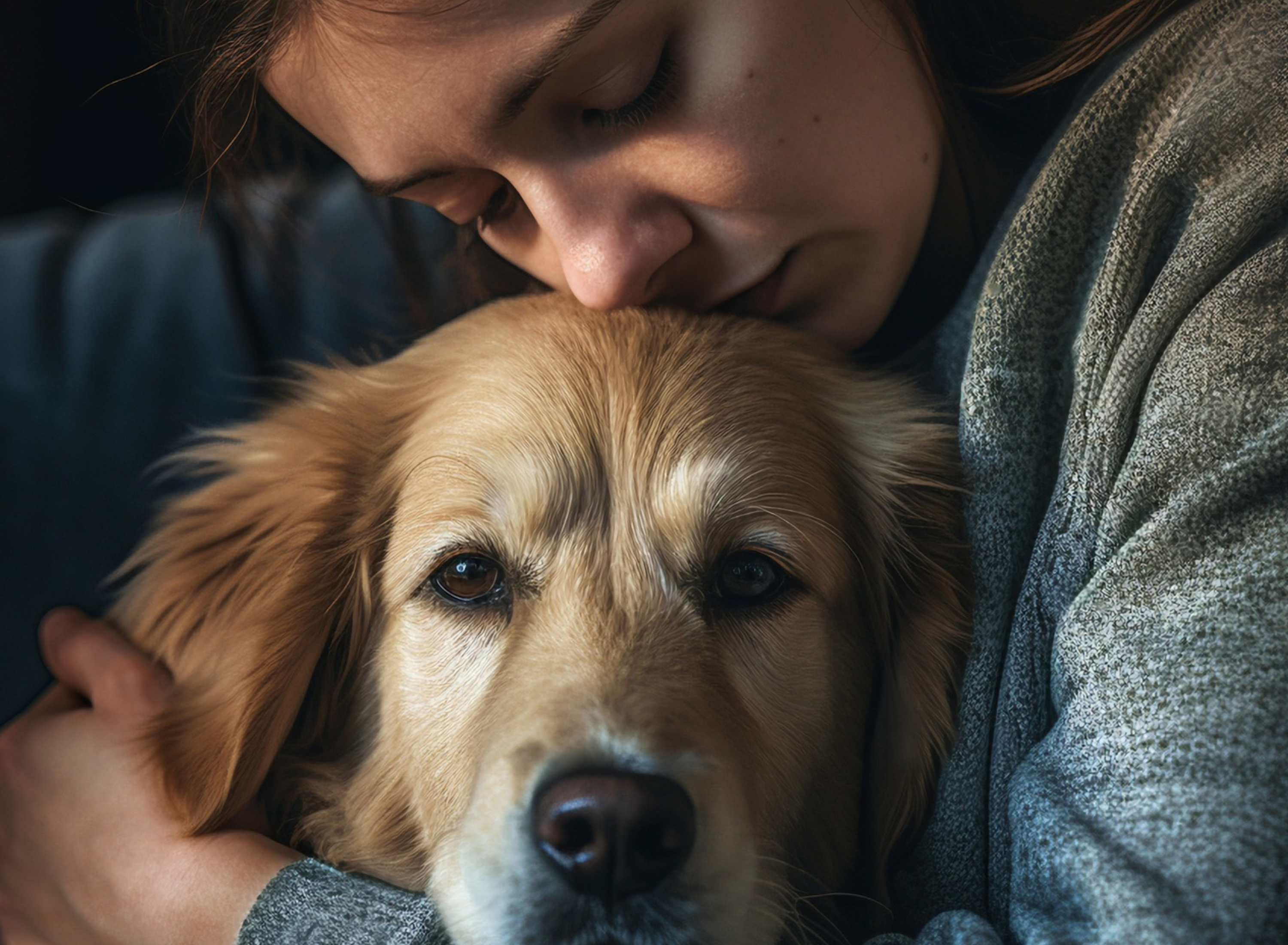
Why Does My Dog Walk in Circles? Top 3 Reasons

One of the most curious dog behaviors is their tendency to run around in circles. This seemingly nonsensical behavior is immediately noticeable and will get any dog owner wondering why it is happening.
However, it is even more notable because, in some cases, it is an indicator that something is wrong. In these cases, dog owners need to be on the lookout and attempt to determine why their dog is doing this.
So, if you’ve ever asked yourself, “Why does my dog walk in circles?” keep reading. You’ll uncover the secret alongside discovering more ways to keep your dog healthy.
Why Does My Dog Walk in Circles?
The reason for this peculiar behavior in dogs isn’t exactly straightforward. This is because it can come from a number of different places. The reason your dog walks in circles may be entirely different from the reason another dog walks in circles.
Despite this, the reasons tend to come from three similar sources. They are due to health issues, old age, or for no real reason at all.
Health Issues
Poor health can be a reason dogs walk in circles. This is often the case when the behavior starts suddenly and hasn’t happened before that point. This indicates that something has changed with your pet’s health and that it is causing them to act in this unorthodox way.
This health change may be due to seizures, which alter your dog’s brain and make them walk in circles. Seizures in dogs are typically exhibited by a period of uncontrollable shaking and twitching, usually lasting over 60 seconds. Signs that your dog has experienced a seizure include lack of focus, disorientation, and the inability to control their bladder. If you believe your dog is having or has had seizures, you should talk to a veterinarian about the issue as soon as possible.
Another possible health issue that can cause your dog to walk in circles is an ear infection. Ears play a big part in balance, so when they are thrown off, balance is thrown off, too. Again, you will have to take your dog to the vet’s office to have the issue looked at and taken care of.
Stress can be a factor as well. Dogs dealing with too much stress can exhibit their stress in weird ways. One of these is walking in circles. This is thought to have a calming effect on the dog. You can work with your vet to address this issue while also taking steps to reduce your dog’s anxiety on your own.
Don’t underestimate the value of keeping your pet calm and fighting off anxiety. Use our Pamper Your Pet Kit - Anti Itch to treat them to a relaxing spa day.

Issues From Old Age
Unfortunately, as dogs age, they become more likely to experience various health problems. Many of the most common problems can result in your dog spinning in circles as one of the symptoms.
Cushing’s disease is one example of this. This disease, also known as hyperadrenocorticism, comes from a hormone imbalance. Since hormones influence behavior, an imbalance can change the way your dog acts. It can lead to reduced activity, increased appetite, increased thirst, excessive panting, and more.
Vestibular disease is another potential problem. This disease has a direct impact on your pet’s balance. So, similarly to an ear infection, it throws off the way your pet walks. This can result in them walking in circles or just having trouble walking in general.
Finally, dementia can be a cause of their walking problems. Just like with humans, dementia has a chance of developing as dogs get older. This dramatically impacts their overall cognitive function and will generally worsen as they age.
Random Walking in Circles
While there are plenty of reasons to be concerned when a dog walks in circles, sometimes, there isn’t an issue at all. Sometimes, dogs just randomly decide to walk in circles.
It could be something that they do as a part of their routine. Some dogs like to spin in a circle as they get ready to lie down in their comfy dog bed for the night. Other dogs like to do this before they start playing or after they use the bathroom. If this is the case for your dog, over time, you will likely start to see the pattern emerge and be able to identify those circular walks from one of real concern.
The spinning could also be a way to work out excess energy. Many dogs just want to run around because they are excited or generally energetic. When this happens, running in a circle could be just an expression of this energy.
Finally, it could be confusion from training. If you are teaching them to spin as a part of a trick, they may try to perform this activity at random times. They may think that doing so will get them a treat or earn your praise. Eventually, this behavior is likely to work itself out, so it isn’t anything to worry about.
Related: 9 Reasons Why Dogs Eat Grass (and 9 Ways to Make Them Stop)

Is Circular Walking a Concern?
Circular walking can either be a sign that something is wrong with your dog, or it could be something completely random. Deciphering between these two extremes is a matter of knowing what to look for.
The biggest sign of concern is if the behavior started suddenly. If this happens in an old dog, a dog exhibiting the signs of other health problems, or a dog showing other signs of discomfort, then it is a serious concern. You should talk to your vet about it whenever possible and work forward from that point.
However, if the behavior is just something your pet does on a regular basis, it probably means nothing. You can still bring it up with your vet to be on the safe side, but you shouldn’t worry too much about it. Instead, just enjoy this odd behavior that makes your pet unique.
Is your older dog having accidents in the home? With this PupProtector™ Waterproof Throw Blanket - Cheetah Faux Print you can provide them with a place to lay down while keeping your furniture safe.
The Reasons Behind Circular Walking
Dogs may walk in circles as an outlet for energy or a way to express themselves. However, they can also start walking in circles when they develop health problems. It is up to you, as a dog owner, to understand the difference and know when to seek out help for your dog.
Related: Why Do Dogs Tear Up Their Beds? Unraveling the Mystery
Share this article
written by


